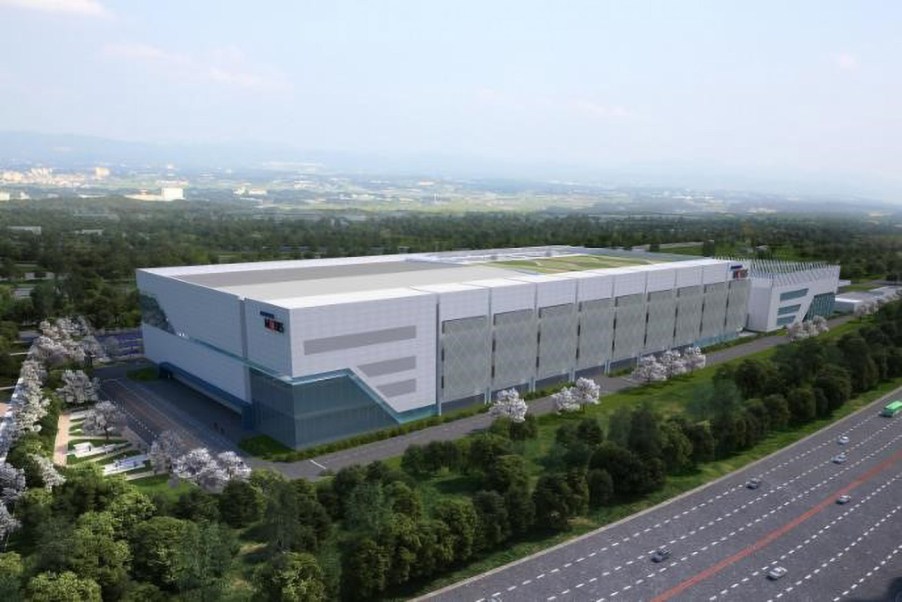
Hyundai Invests $1.1 Billion In Hydrogen Fuel Cell Plants
The electric vehicle future is fast approaching. Automakers are openly promising to shift to 100% EV production within the decade. Science stands behind the fact that electric vehicles are better for the environment. Hyundai is looking to be at the forefront of the emerging EV market by making a significant investment in hydrogen fuel cell technology.
Hyundai Mobis invests $1.1 billion for two hydrogen fuel cell pants in Korea

Depending on what part of the world you live in, you may not be familiar with Hyundai Mobis. Hyundai Mobis is the parts and service division of Hyundai automobiles. However, Hyundai Mobis is much more than a parts bin warehouse. The division is responsible for manufacturing critical parts and components for Hyundai Motors, Genesis Motors, and Kia Motors.
Recently, this division of Hyundai decided that they will build two new hydrogen fuel cell production plants in South Korea. Hyundai Mobis stated that they chose to build the plants “to accelerate the hydrogen economy and to secure broader global market dominance.”
On October 7th, 2021, Hyundai Mobis held a groundbreaking ceremony for the first of two new hydrogen fuel cell production plants at the Industrial Complex in Cheongna International City, Incheon.
The new plants are set to start mass production of hydrogen fuel cells by the second half of 2023. Once the manufacturing facility is “fully operational” (Star Wars reference FTW), the Hyundai Mobis expects the plants to produce 100,000 hydrogen fuel cells per year.
Hyundai Mobis will invest $1.1 billion in the two fuel cell production plants. Once the two new plants are completed, Hyundai Mobis will have three hydrogen fuel cell production facilities. Their current plant in Chungju, Korea is producing 23,000 fuel cells per year.
Will the chip shortage or COVID-19 get in the way of fuel cell production?

The global semiconductor shortage has hit several manufacturers very hard. In some cases, analysts have suggested that the chip shortage has been worse than COVID-19 for some automakers.
Hyundai, on the other hand, has navigated the chip shortage relatively well. In contrast, other automakers have struggled with maintaining their production goals. Hyundai did not have an issue with its supply chain.
Coronavirus (COVID-19) is another story. Navigating a chip shortage is possible with a strategic allocation of resources and shifting the suppliers an automaker works with. Dealing with coronavirus is an entirely different issue that comes with a host of problems such as government regulation, employee attitudes, and safety protocols.
Ford recently decided that they would require all of their non-union employees to show proof of vaccination. However, that is not a solution that automakers can apply globally.
Hyundai Mobis is confident in pushing ahead with these new plants despite the looming danger of coronavirus.
“Despite uncertainties including COVID-19, we have decided to make this large-scale investment to secure the market-leading competitiveness in the global fuel cell industry. We will continue to invest more in facilities and strengthen our R&D capability for the development of the hydrogen industry and expand the ecosystem.”, said Sung Hwan Cho, President, and CEO of Hyundai Mobis.
Are hydrogen EVs better than battery EVs?

Currently, hydrogen fuel cell electric vehicles (FCEVs) are the only significant alternative to battery electric vehicles (BEVs). Toyota has made significant investments in pushing hydrogen fuel cell vehicles in recent years. The Toyota Mirai was one of the automaker’s first hydrogen fuel cell vehicles. Honda also joined the hydrogen fuel cell market in America with the Clarity EV.
Some consumers might wonder which EVs are better: hydrogen or battery? The truth is there are pros and cons to each. Though, generally speaking, hydrogen loses out when it comes to infrastructure. There are just not very many hydrogen refueling stations in America currently. In other parts of the world, that is not the case.
That may be why Hyundai Mobis is investing $1.1 billion in two new hydrogen fuel cell plants. If the hydrogen infrastructure grows in America, expect automakers to look into building hydrogen fuel cell plants in the United States as well.


